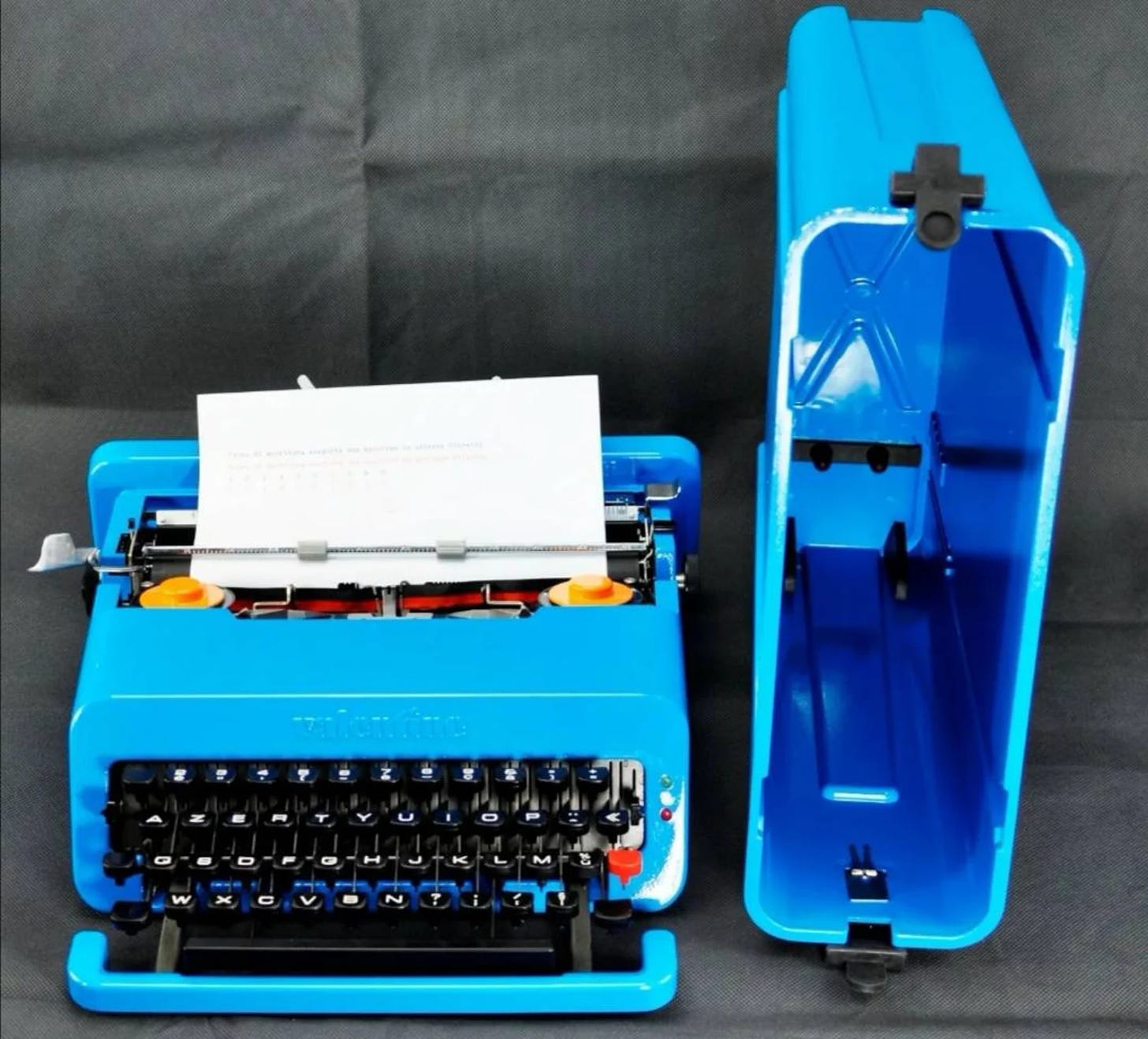Today is National Typewriter Day! I learned this from Letters of Note, which graces my inbox ever so often and is always delightful. Today, Shaun Usher of same shared letters by famous writers kvetching about the newfangled device.
I think the tools with which we write have an effect on what is written. When we depended upon the oral tradition, stories were musical, poetic, repetitive so that we could memorize them, such as The Odyssey; this also seemed to hold with The Epic of Gilgamesh (which I explored in joyful depth here) which was written in cuneiform, but it may have first existed before the Sumerian written word went beyond tallying grain stores and was adapted for poems.
Then we scribbled with pens and could make notes and marginalia and cross out; great literature abounded! Then the typewriter stepped in, Bartleby be damned. We scrivened no more! This office drone tool was reluctantly adopted, just in time for the pulps, where fast-moving story lines that could be crafted in one’s mind as we typed. And then we moved to word processors with the almighty delete key, which precluded us having to know what we were typing before we typed it, because we could edit at will! And we had to relearn how to capture our voice back from the tyrannical internal editor who sits on our shoulder, telling us that everything is shit.1
My first experience with a typewriter was discovering the manual in a carrying case that was hidden away in my grandmother’s basement. I think it belonged to my deceased uncle Louis. It needed a new ribbon, which I purchased at Peerless Stationery in my hometown of Nutley, and I began tip-tapping away, smacking ink onto paper—sometimes even onionskin or vellum when I was feeling fancy. It was a manual, and I hit the keys with such force that the periods punctured the paper with peepholes. Whatever I wrote using the typewriter felt more real than my journal scribblings. It felt… published.
You’d think I would have approached it with reverence, but mostly I wrote dirty words. I was perhaps eight years old, and to me, the pinnacle of forbidden knowledge were the R-rated movies on HBO that I was not allowed to watch, but watched anyway. This is why I titled my very first newsletter, written on that typewriter:
R Magazine.
I don’t remember much of what I wrote for it, except a story about a man who used every iteration of the word “shit” that I knew, until he transformed into a giant walking turd. My older cousin Lou (son of the typewriter’s owner) was so tickled by my puerile attempts at humor that he read this aloud, much to my delight. (He’s still my favorite cousin.)
I embraced the computer keyboard when my mother, supporting us on a cocktail waitress salary but driven by the guilt of divorce, gave me an Atari 800XL for my twelve birthday. But I’ve lusted for a typewriter, such as a snazzy portable Olivetti Valentine, for years. And their just happens to be a Typewriter shop in Philly! One so great that even Tom Hanks is a customer!
However, I like not being murdered in my sleep. Sarah has told me emphatically that a clacking typewriter would engage her misophonia, and so I merely admire them from afar. Because I’m honest with myself. I wouldn’t write great novels on such a thing.
But I’d definitely escalate to writing X Magazine.
Sometimes it is shit.







I 100% need to read your shit story. (I mean, I’m sure it isn’t a shit story but ... you know what I mean. It’s the shittiest shit story that isn’t a shit story, sounds like.)
Also, when I started at my government office (in 2004 people!) there were still ***typewriters*** in the office supply rooms. And a rumor that some of the longest-tenured employees wrote their reports with them and the Admin Assistants still typed them up. 🤦♀️ I’m a little ashamed I didn’t steal a typewriter or at least a some white-out or a beautiful glass ashtray from the supply room.
I have no idea what model of typewriter my mom owned, but it always smelled like it was about to become an electrical fire. I typed a lot of silly stories on it as a kid and eventually college papers. It was a game changer when I got my first word processing typewriter toward the end of college.
Did you ever come across the sheets of plastic that had a thin layer of chalk on them that you could use to fix typos? You inserted them over the typo on the paper and typed over both the sheet and the paper to hide the mistake, and then re-typed over everything to correct it. This was before Wite-Out and Liquid Paper.